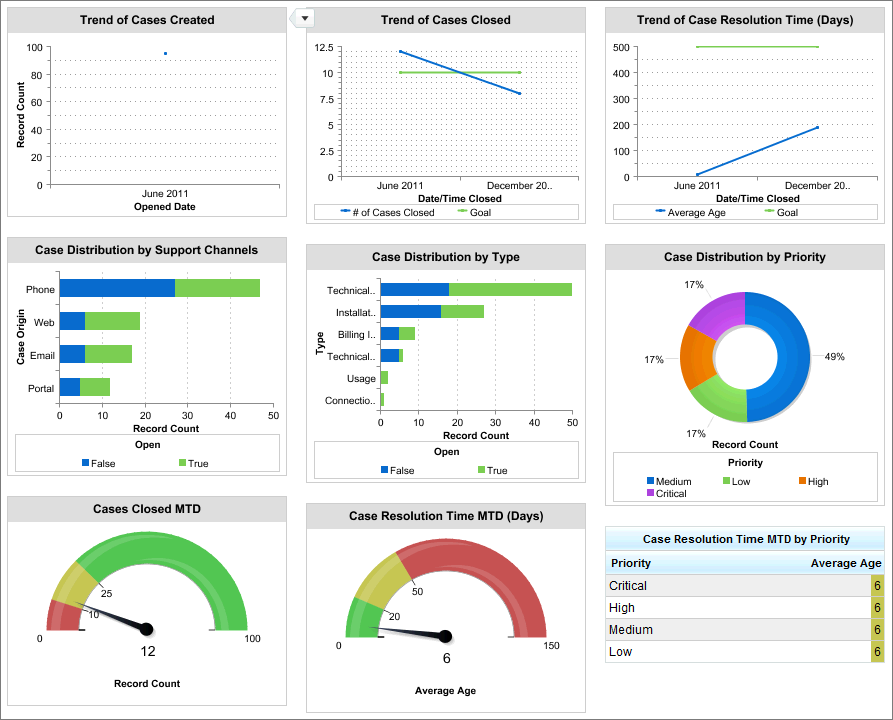

Tracking What Matters: KPIs in Salesforce Service Cloud
In the world of customer service, every second counts and every interaction matters. Salesforce Service Cloud empowers support teams with powerful tools to deliver fast, personalized, and effective service. But without the right Key Performance Indicators (KPIs), even the most advanced CRM can’t guarantee success.
KPIs in Service Cloud aren’t just about measurement—they’re about momentum. They help you identify what’s working, what’s not, and how to continually improve the customer experience.
Why KPIs Are Critical in Service Cloud
Customer expectations are sky-high. They want fast responses, seamless resolutions, and consistent service across every channel. KPIs give service leaders the ability to:
-
Monitor performance in real time
-
Detect bottlenecks or service gaps
-
Drive team accountability
-
Align operations with business-wide customer experience goals
In short, KPIs turn data into action.
Essential KPIs to Track in Service Cloud
Here are the key metrics every service team should keep a close eye on:
1. First Response Time (FRT)
How quickly are agents responding to new cases? A fast FRT shows responsiveness and is a strong indicator of good customer service.
2. Case Resolution Time
How long does it take to fully resolve a case? Service Cloud lets you break this down by agent, channel, or issue type to spot trends.
3. Customer Satisfaction Score (CSAT)
Use automated surveys post-interaction to track how happy customers are with their service experience.
4. Case Volume
Monitor how many cases are coming in—by channel, product, or region. Spikes may indicate product issues, seasonal trends, or resource gaps.
5. Agent Productivity
Measure cases closed per agent, time spent per case, and agent availability to optimize staffing and performance.
6. Service Level Agreement (SLA) Compliance
Are cases being resolved within promised timeframes? SLA breaches can lead to poor experiences—and lost trust.
Align KPIs with Strategic Goals
It’s not enough to just measure performance. Your KPIs must reflect what your company values most—whether that’s speed, quality, personalization, or efficiency.
-
If your goal is customer retention, prioritize CSAT and resolution quality.
-
If you’re focused on scaling service operations, track agent productivity and automation rates.
-
For cost-efficiency, monitor cost per case and time to resolution.
Without alignment, KPIs become just numbers—pretty dashboards that don’t tell the real story.
The Risk of Misguided Metrics
When KPIs aren’t well thought out, they can actually work against you:
-
Agents may rush through tickets to hit quotas, sacrificing quality.
-
Teams may obsess over low-impact metrics (e.g., total chats handled) instead of what truly drives customer loyalty.
-
Leadership might misinterpret data, making decisions that fix the wrong problems.
Salesforce Service Cloud offers deep analytics, but it’s up to you to choose KPIs that guide the business forward—not sideways.
Making the Most of Service Cloud KPIs
To get full value from your KPIs in Salesforce:
-
Use Reports & Dashboards to track key metrics in real-time
-
Set up automated alerts for SLA violations or satisfaction drops
-
Leverage Einstein AI for predictive insights and trend forecasting
-
Continuously review and refine KPIs based on evolving goals
Final Thoughts
The magic of Salesforce Service Cloud lies in its ability to turn data into service excellence. But the true transformation only happens when you focus on KPIs that matter—ones that reflect your goals, empower your team, and enhance your customer experience.
Choose your metrics with care, align them with purpose, and let them drive your service strategy forward.
